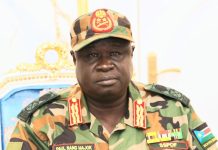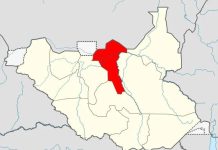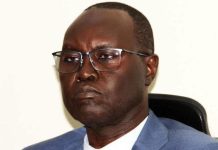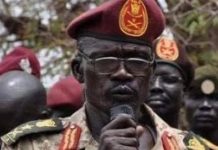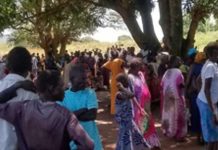AMAJU UBUR YALAMOI AYANI
Africa-Press – South-Sudan. It is so unfortunate that South Sudan, the world’s youngest nation, remains a fertile ground for the rise and growth of tribal armed groups since its independence in 2011. Multiple reports published by the United Nations Mission in South Sudan (UNMISS), for example, have indicated that the Upper Nile region alone hosts five active antagonistic tribal-armed groups. They include the Nuer-based White Army, the Agwelek of Shilluk, the Abushok of Dinka Apadang, the Murle Youth (mostly members of Cobra Faction), and the recently established Red Belt Movement of Dinka Bor. In Bahr el Ghazal, prominent and conflict-linked groups are Titweng, Mathiang Anyoor, and Gelweng. In the Equatoria region, there exist the Arrow Boys of Azande and Monyomiji in Eastern Equatoria State. For many years, these militant groups have allegedly been the steam engines of intercommunal conflicts across the country as they actively engaged with security forces. On many occasions, they bulldozed security agencies, only to be overpowered a week or so later.
Why do they rise in the first place?
According to many independent observers (both domestic and international), the rise and growth of tribal-based militants in South Sudan are triggered by different but interrelated factors, ranging from political manipulation by political elites (power struggle), polarization of ethnicity, lack of professionalism within the state security institutions, impunity, and poor governance, to struggle over scarce resources. Given the sensitivity of each of these problems, many observers have concluded that the fragility of state institutions (security agencies) takes precedence. Of course, it is common knowledge that most of South Sudan’s security establishments, if not all of them, are susceptible to systemic corruption. Consequently, state-owned military hardware (small and light weapons) ends up in the possession of the wrong elements. The easy access to firearms and their availability in the hands of the local population is now the primary factor responsible for the rise of tribal-based militants in South Sudan.
How are they a threat?
The rise and existence of tribal-militant groups pose a significant threat to the stability of South Sudan. Although some of them are currently offering some parties to the R-TGoNU a flexible and low-cost tool to achieve military and political objectives, their existence and tactical use come with some risks. Militias and paramilitaries have historically served various purposes, ranging from community defense to supporting the government. But their proliferation and activities usually undermine the state’s authority. Since they act outside the state legal frameworks, tribal-based militants can furiously challenge the state authority by enforcing their own rules and agendas on the ordinary people living in the territories where they exist. Even others can develop an insatiable appetite for regime change. If their activities continue to thrive in the Republic of South Sudan, the country will find itself in a swimming pool of Hobbesian state of nature, where life becomes “solitary, nasty, brutish and short” as a result of constant “War of All Against All”. History informs us that tribal or sectarian militant groups, though operating under the state directives (as happened in Sudan and Russia), can fuel instability, perpetuate violence against civilians, hinder national integration, and above all, become major drivers of insecurity and humanitarian crises across the country.
What should be done?
As the SSPDF Central Command has raised its banner high and become now more determined to restore the government’s internal sovereignty and legitimate monopoly on force, a question arises: Which policy options can work best in eradicating the rise and existence of tribal-militant groups in South Sudan? Handling such groups, in my opinion, requires not only military confrontation but also comprehensive and multifaceted approaches. Any proposed mechanisms should treat not only symptoms of the conflict but also address its root causes. Since factors stirring the rise of tribal-armed groups in South Sudan are multi-layered, effective strategies should include a combination of security sector reforms, political engagement, and community-based peace initiatives. The government, through its security council and other relevant authorities, should embark on the security sector reforms. Reforms should basically prioritize professionalization of all members of the military and other security apparatuses, adequate and timely payments, and inclusive recruitments. Reforms such as these will able military or security personnel to observe military and security ethics. Professional soldiers, police, and other regular personnel usually act with enough discipline, patriotism, and ideological orientation when safeguarding the constitution of the republic.
At the community level, governments at all levels should initiate and spearhead people-to-people dialogues. Such dialogues can aid and expedite reconciliation and healing among rival groups. Many intercommunal conflicts have been mostly instigated by struggles over scarce resources. Other essential strategies should encompass inclusive governance, rule of law, and inclusive, fair, transparent, and context-specific disarmament, demobilization, and reintegration (DDR). Empowering the work of civil society groups and tailoring community-based reintegration that offers livelihood alternatives (vocational training) may also incentivize ex-combatants.
Conclusion
In conclusion, it is my deeply held belief that engaging tribal-based militants through the aforementioned mechanisms can bring about durable peace, tranquility, and stability in South Sudan. Nevertheless, a pessimist may contend that such approaches were initially tried but never bore any fruit. Based on my own observations, such initiatives, if tried at all, had never been exhausted or implemented in good faith. Whether disarmament, people-to-people dialogue, or recruitment in security sectors, all have never been conducted genuinely. Consequently, the country is where it is today because of the preponderance of tribal-based militant groups whose constant emergences lie on the pretext of defending their own communities.
Source: Radio Tamazuj
For More News And Analysis About South-Sudan Follow Africa-Press


